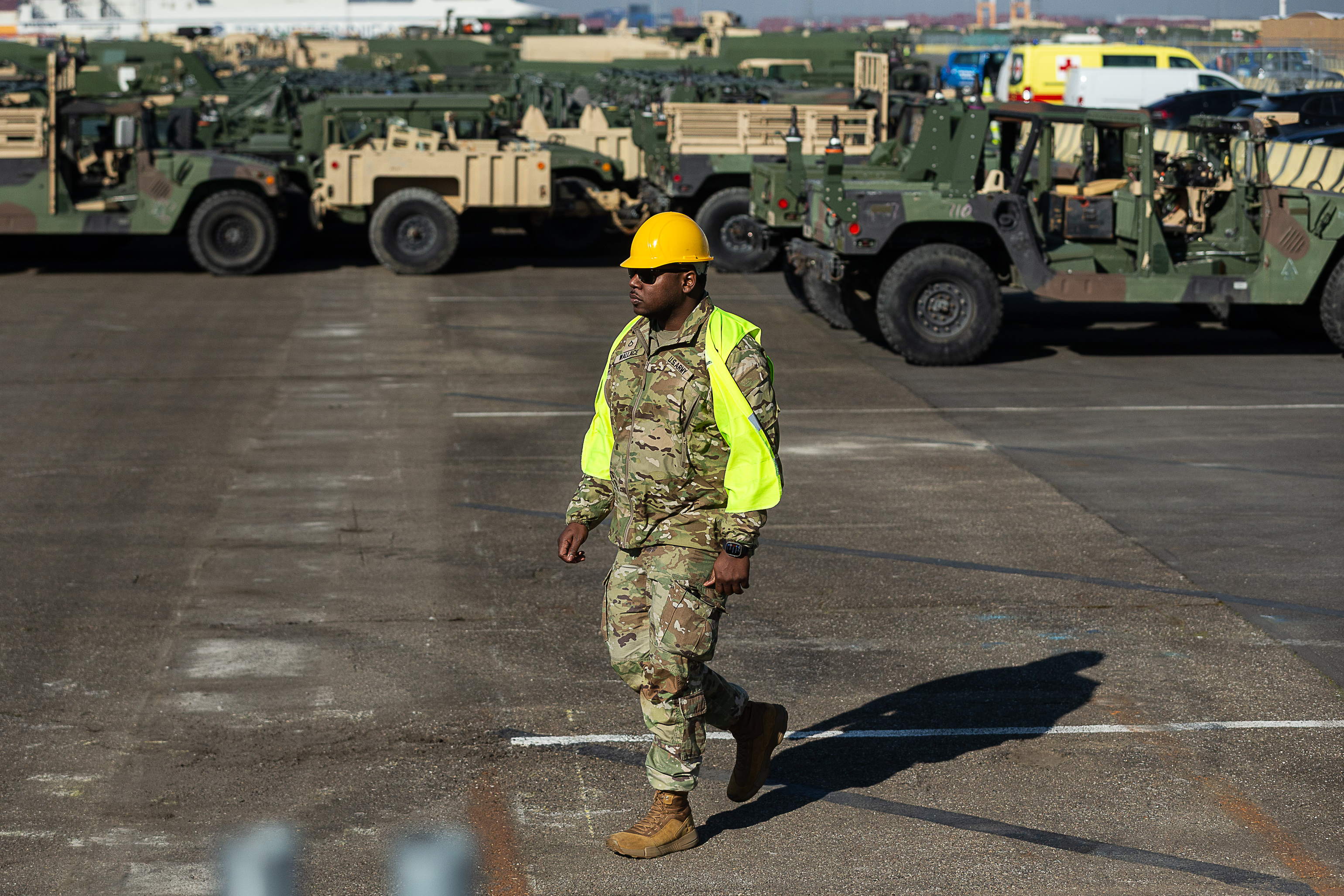Belgium hosts NATO rotation as US military equipment arrives in Antwerp

A ship carrying 1,700 pieces of US military equipment was unloaded in Antwerp on Wednesday as part of NATO’s ongoing defence rotation. Belgium is set to host five American military rotations between late February and early April.
“This is a standard rotation of equipment and personnel from our NATO partner America,” said Colonel Johan Lenière. “One infantry unit arrives, another leaves. Around 3,000 to 3,500 infantry units are being relieved on NATO’s eastern flank under Operation Atlantic Resolve - but only equipment arrives in Antwerp.”
While the arrival of US troops and equipment in Zeebrugge or Antwerp is routine, this rotation has drawn increased attention. Belgian Defence minister Theo Francken of N-VA, currently on an economic mission in India, has been vocal about the need for more significant defence investments.
“The minister wants to pull the cart,” his spokesperson said. “He aims to demonstrate certain necessities and build public support. Because the unknown is often unloved.”
© BELGA VIDEO ROBBE VANDEGEHUCHTE
Despite shifting political dynamics in the US, approximately 100,000 American soldiers remain stationed in Europe, necessitating periodic rotations. “This rotation in Antwerp is fully supported by us,” the Defence ministry confirmed. “It is of great strategic importance. NATO partners regularly use European ports and infrastructure to transport personnel and equipment.”
Wednesday’s operation falls under the Host Nation Support agreement between the US and Belgium. Meanwhile, Francken is preparing a proposal to accelerate Belgium’s defence spending, aiming to meet NATO’s 2 per cent GDP target by June rather than the coalition agreement’s 2029 deadline.
“This still requires government approval,” he said, “but I feel support from other parties.”

Beyond Belgium’s role as a key logistics hub for NATO, broader concerns about Europe’s military infrastructure persist. The EU has sought to better align member states’ defence capabilities, particularly in light of the Russian threat.
Since 2018, all EU nations except Malta have committed to standardising military logistics, with Norway, the US, Canada and Switzerland joining later. However, nearly seven years into the initiative, European infrastructure remains inadequate for large-scale military deployments.
Belgium plays a crucial role in NATO logistics, largely due to the strategic importance of the port of Antwerp-Zeebrugge. The port serves as a vital transit point for military shipments, linking transatlantic supply routes.
Logistical difficulties
However, heavier military equipment, such as armoured vehicles, must be transferred to trains, and much of Belgium’s rail and road network is not designed to handle such large-scale transport.
Many bridges cannot support the weight of modern armoured vehicles, nor are they equipped with visible military weight classifications to facilitate planning, as was standard during the Cold War. These infrastructure gaps highlight the challenges Belgium and NATO allies face in ensuring efficient troop and equipment movements.
Atlantic Resolve, launched in 2014 following Russia’s annexation of Crimea, remains a cornerstone of NATO’s presence in Eastern Europe, one in which Belgium continues to play a pivotal role.
#FlandersNewsService | A US military rotation operation in the port of Antwerp, 5 March 2025 © BELGA PHOTO JAMES ARTHUR GEKIERE
Related news

